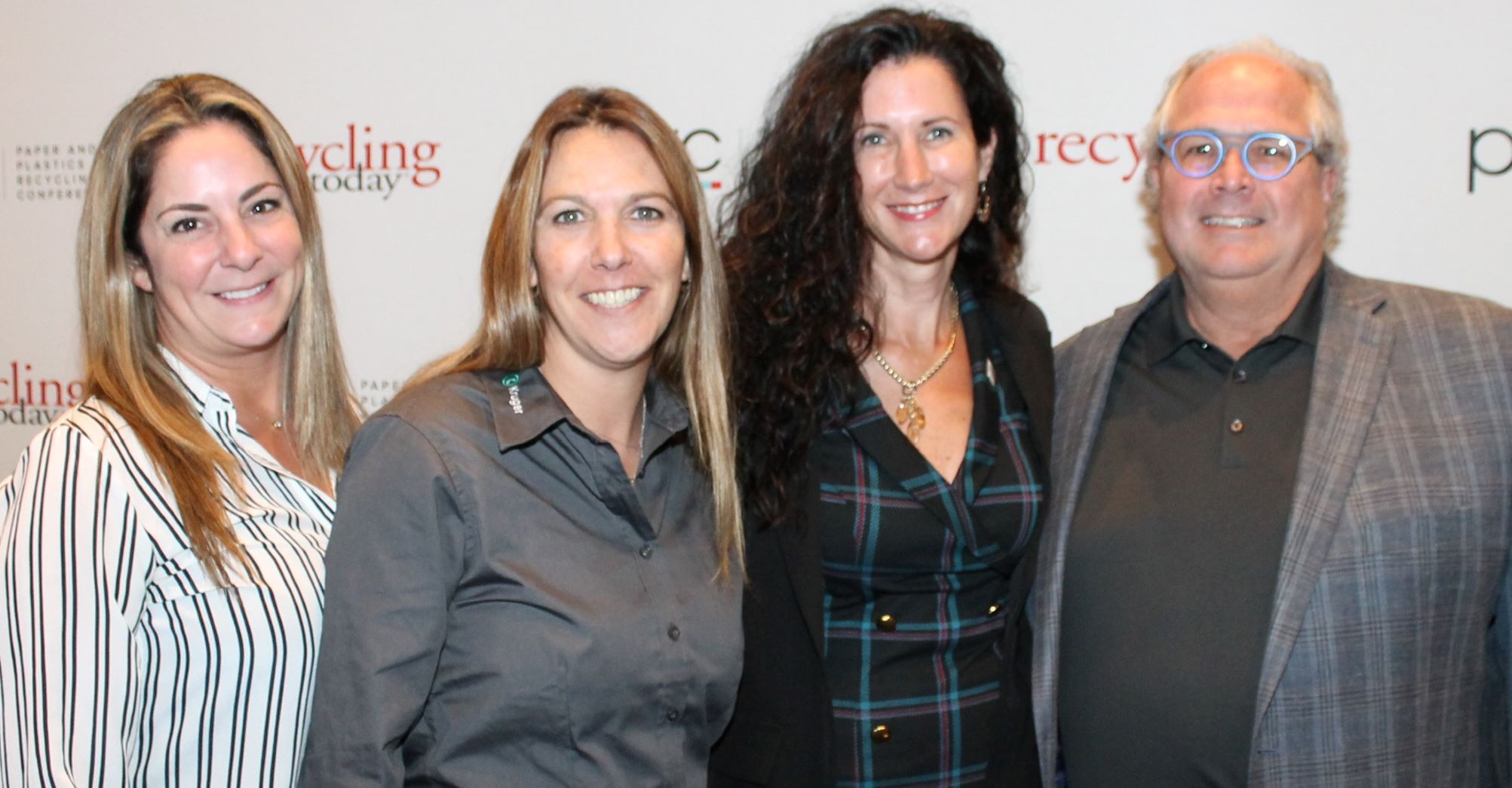Members of ISRI’s Paper Stock Industries (PSI) Chapter played a leading role in the “Commodity Focus: High Grades” panel discussion at the Paper and Plastics Recycling Conference Oct. 19 and 20 in Chicago.
Moderator Kari Talvola of Fibre Trade Inc., and PSI Secretary/Treasurer Kathy DeLano of Texas Recycling, who served as a speaker, joined Ysabelle Dupuis of Kruger Recycling, and Ron Gable of PROSHRED Security/Redishred Capital Corp., to discuss a variety of market-related topics, including supply challenges during the pandemic; fiber-quality issues; the effects of inflation; and the future of high-quality materials supplied to recycling facilities.
According to Dupuis, high-quality materials are “dying grades” that are slowly but steadily becoming less available. “It’s not when the generation will be down, it’s happening now, and that change has an impact,” she says. “The decline won’t stop.” COVID-19 and the resulting shift of American workers from office to home employment “drastically” reduced the supply of high-quality paper, Dupuis says.
Gable noted that material instead stayed at home or went into municipal recycling. To counter that trend, his mobile paper-shredding company is emphasizing to customers the importance of document security, whether paper is generated at home or in the office. His company also encouraged office customers to continue doing “the annual purging of paper even during COVID,” he says. “We chased that rather aggressively.”
During the pandemic, food packaging took off when people mostly ate at home during the early lockdowns, so those packaging materials are up in shipments coming into recycling facilities, DeLano says. “There’s more color and more mixed in sorted office paper now,” she adds, noting her facilities had to explore using additional qualities of paper. “We’re looking for substitute grades, so we aren’t surprised again when the next disruption happens,” she says.
Many of the materials on the rise in incoming paper can require more chemical treatment to be usable, which adds cost to recycling. By contrast, Gable says the office paper stream is cleaner these days because there are fewer newspapers and magazines in offices. “We don’t have many rejects or discarded bales anymore,” he says.
In terms of current business concerns, labor is probably the biggest challenge, DeLano says. “It’s hard to find and retain employees,” she says. “A lot of people didn’t come back to the workforce after the pandemic.”
Dupuis says it has been more difficult to “build the group dynamic” with employees during the pandemic, which makes it harder to retain workers. DeLano noted there’s also an ongoing shortage of supplies in general, and trailers are particularly hard to find.
For Gable, the higher fuel costs are making it tough for his mobile shredding business to maintain margins. Rising interest rates are making it more expensive for his company to finance the purchase of new trucks.
Photo courtesy of Kent Kiser. Caption: Kari Talvola (far left) led PPRC’s “Commodity Focus: High Grades” panel, featuring Ysabelle Dupuis, Kathy DeLano, and Ron Gable.










